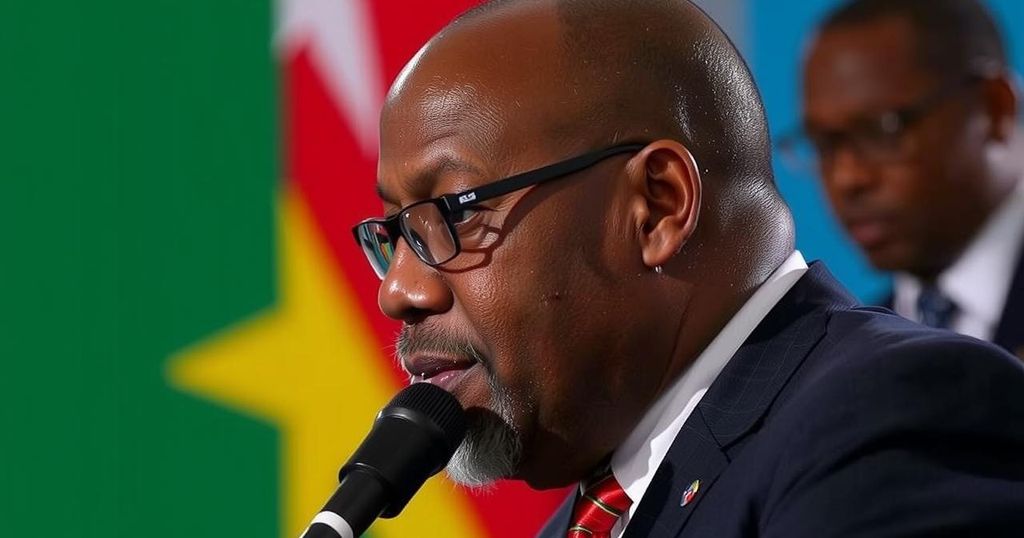Tragic Murder of Opposition Lawyer Escalates Political Tensions in Mozambique

Elvino Dias, lawyer for mozambique’s opposition candidate Venancio Mondlane, was shot dead alongside PODEMOS spokesperson Paulo Guambe in Maputo, exacerbating tensions during a contested election process against the ruling Frelimo party. The incident highlights issues of violence, electoral fraud, and repression of dissent in Mozambique’s political landscape.
In a tragic escalation of violence against political figures in Mozambique, the lawyer for opposition presidential candidate Venancio Mondlane was shot dead alongside a senior party official this past Friday night in Maputo. The incident occurred as the nation awaits the results of an election that poses a significant challenge to the nearly half-century rule of the ruling Frelimo party. Elvino Dias, who served as an advisor to Mondlane, was killed when gunmen in two vehicles ambushed and sprayed his car with bullets in a busy area of the capital. Paulo Guambe, a distinguished member and spokesperson for the PODEMOS party, was traveling with Dias and succumbed to his injuries in this targeted shooting. The PODEMOS party has attributed the attack to the ongoing climate of tension and alleged repression surrounding the electoral process, which they claim is marred by vote rigging. As preliminary results indicate a solid lead for Frelimo’s candidate Daniel Chapo, accusations of electoral fraud and calls for nationwide strikes have emerged from Mondlane and PODEMOS. Dias was actively preparing to contest the election results with Mozambique’s Constitutional Council, highlighting the hostile political landscape. Human rights activists have characterized Dias’s murder as a political assassination, denouncing it as indicative of a broader problem of governmental oppression. The Mozambican Bar Association has also condemned the “barbaric murder” and deemed it an affront to the legal profession and the rule of law. This incident raises alarm over the safety of opposition figures post-election, emphasizing the challenges faced in Mozambique, where Frelimo has maintained its grip on power since the nation gained independence in 1975. The political environment remains fraught with allegations of violence against demonstrators and suppression of dissenting voices, with a significant military presence noted in the capital following the election.
Mozambique is emerging from a contentious electoral process that threatens to disrupt the long-standing dominance of the Frelimo party. The elections held on October 9, 2023, have prompted serious accusations of electoral fraud, leading to heightened political tensions. The PODEMOS party, a relatively new political entity, has challenged the traditional ruling party’s authority, and their presidential candidate Venancio Mondlane has become a key figure in opposing Frelimo’s electoral practices. The violence against political challengers reflects a deeply rooted issue of political repression in the country, with prior instances of governmental suppression against dissenters. Furthermore, the recent violent acts against opposition figures underline the precarious state of democracy in Mozambique and the urgent need for fair electoral practices.
The assassination of Elvino Dias and Paulo Guambe stands as a stark indication of the dangers faced by political dissenters in Mozambique, particularly amidst a fraught election season. As the nation awaits final electoral results, the atmosphere of fear and repression looms large, casting doubt on the integrity of the democratic process. There are increasing calls for justice and accountability, highlighting the urgent need for reforms to ensure the protection of political actors in Mozambique. The international community must closely monitor the situation as it unfolds to safeguard democratic principles and human rights within the country.
Original Source: www.france24.com








